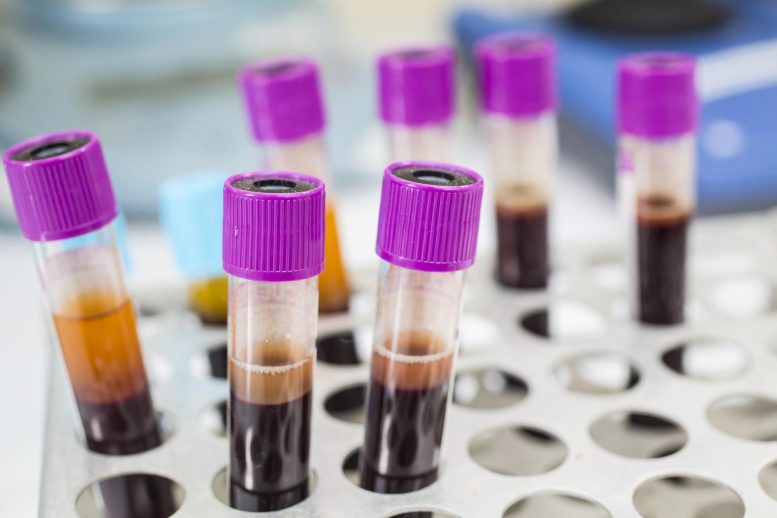
Researchers at Karolinska Institutet in Sweden completed a study that indicates that increased levels of the cytokine interleukin-26 (IL-26) in blood is a potential biomarker for severe COVID-19.
Scientists have shown that patients with acute COVID-19 infection have increased levels of the cytokine IL-26 in their blood. Moreover, high IL-26 levels correlate with an exaggerated inflammatory response that signifies severe cases of the disease. The findings, which are presented in the peer-reviewed journal Frontiers in Immunology, suggest that IL-26 is a potential biomarker for severe COVID-19.
Vaccines for SARS-CoV-2 have proved effective at reducing the number of cases of severe COVID-19. However, the emergence of new viral variants, limited distribution of the vaccine, and declining immunity are problems that drive scientists to find more efficacious treatments for the disease.

Eduardo Cardenas, postdoc researcher at Karolinska Institutet. Credit: Ulf Sirborn
“We need to understand more about underlying immunological mechanisms in order to find better treatments. There is also a need for improved diagnostics in COVID 19-patients,” says Eduardo Cardenas, postdoc researcher at the Institute of Environmental Medicine, Karolinska Institutet, and principal author of the new pilot study.
The researchers have tried, for the first time, to ascertain whether immune signaling via the cytokine interleukin-26 (IL-26) is involved in severe COVID-19.
“We already know that IL-26 is engaged in mobilizing immune cells that combat bacterial infections in the lungs and also in chronic respiratory disease in humans,” says the study’s last author Anders Lindén, consultant and professor at the Institute of Environmental Medicine, Karolinska Institutet. “What’s more, IL-26 has antiviral and antibacterial effects.”
To study how the molecule is involved in COVID-19, the scientists recruited 49 patients who had been hospitalized with SARS-CoV-2 infection, 44 of whom had severe symptoms and needed oxygen therapy. The patients were recruited at a hospital in Stockholm from June 2020 to January 2021. A control group of 27 healthy individuals was also recruited during the same period. The researchers then measured levels of IL-26 protein and other inflammatory compounds in the blood.
“We can show for the first time that blood levels of the cytokine IL-26 are much higher in patients with COVID-19 than in healthy controls,” says Dr. Cardenas.

Anders Lindén, professor at Karolinska Institutet. Credit: Privat
The researchers could also see that the increase was associated with the so-called cytokine storm – an excessive and dangerous inflammatory response that signifies severe cases of COVID-19.
“Our discovery gives us a potential biomarker for severe COVID-19, but given the antiviral effects of IL-26, we may also have identified a new therapeutic target,” says Professor Lindén.
According to Dr. Cardenas, the results are promising but are preliminary and warrant further study with a larger patient cohort.
“Such a study is on the way and can give more information on the clinical value of measuring IL-26 in COVID-patients, such as whether the levels reflect the severity of the disease.
Reference: “Increased IL26 associates with markers of hyperinflammation and tissue damage in patients with acute COVID-19” by Eduardo I. Cardenas, Sandra Ekstedt, Krzysztof Piersiala, Marianne Petro, Agneta Karlsson, Åsa Kågedal, Susanna Kumlien Georén, Lars-Olaf Cardell and Anders Linden, 17 November 2022, Frontiers in Immunology.
DOI: 10.3389/fimmu.2022.1016991
The study was financed by the Swedish Research Council and the Swedish Heart-Lung Foundation.








Be the first to comment on "A New Biomarker for Acute COVID-19 May Have Been Found in Blood"